In a world of relentless technological progress, few names command as much interest and admiration as Elon Musk. Once considered a modern-day Edison for his groundbreaking work with Tesla and SpaceX, Musk has now embarked on a journey that is radically upending the paradigm of contemporary warfare. His latest creation, the UFO X1 fighter jet, is more than just an engineering marvel; it is an invention that has the potential to challenge traditional military power dynamics and recalibrate the global order.
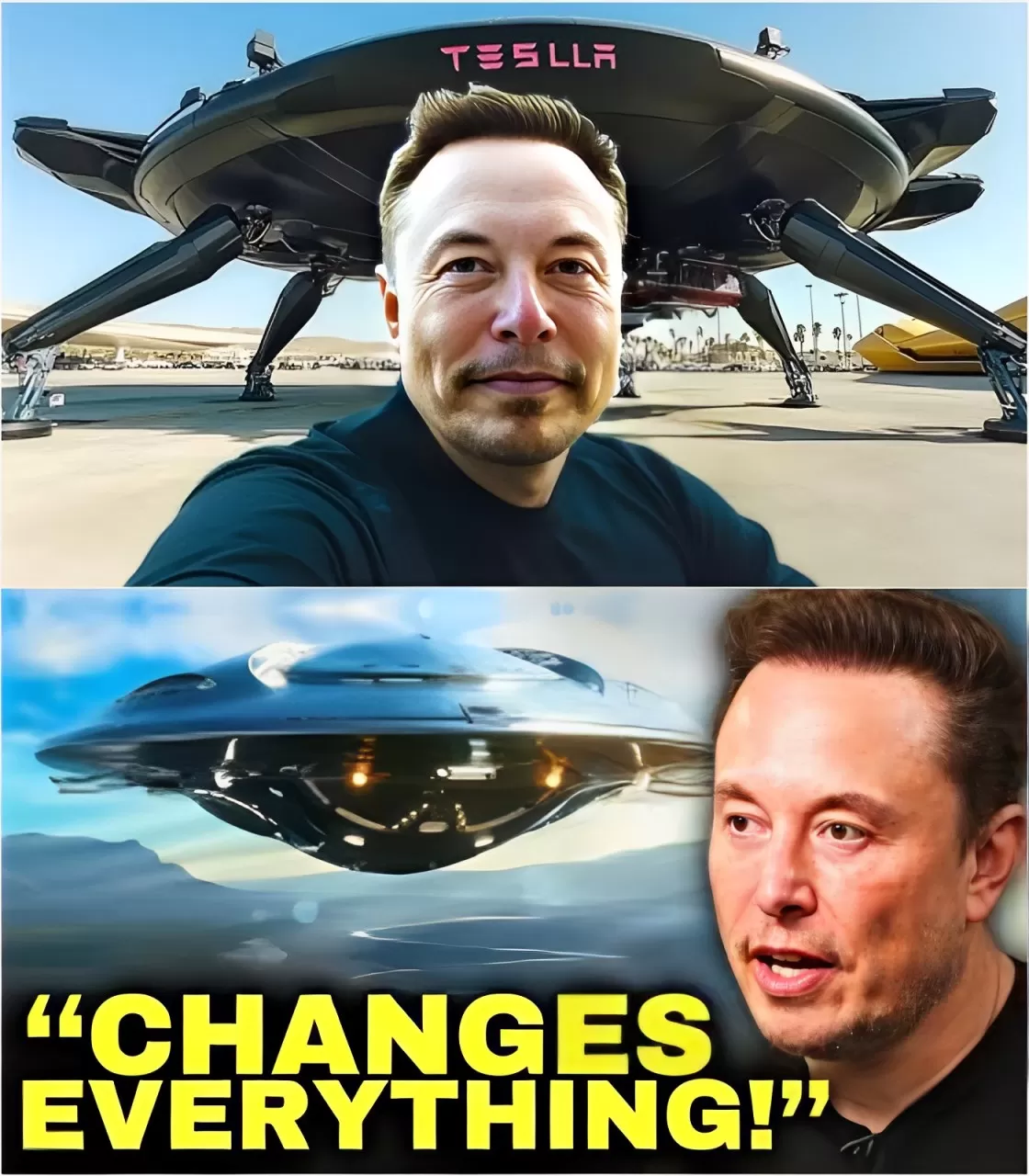
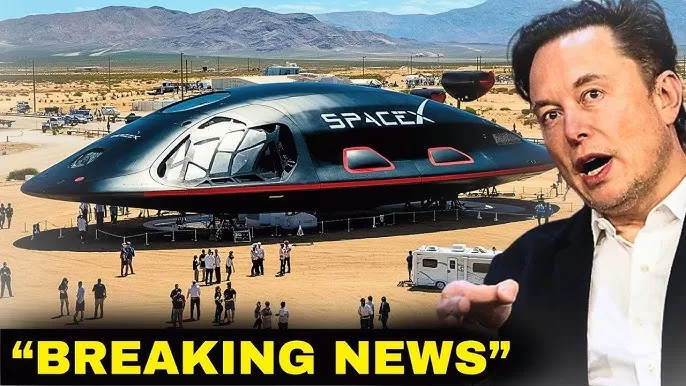
Despite its mind-blowing capabilities, the X1 raises important ethical questions. Elon Musk, once a champion of sustainability and clean energy, now finds himself at the controls of a machine designed not just for defense, but for annihilation. When the X1 soared through the skies during the conflict between Israel and Hamas, its impact was immediate and profound, rendering traditional warfare obsolete and creating a high-tech battlefield dominated by AI-driven precision.
The introduction of the X1 has led to a radical upheaval in military doctrines around the world. As traditional air combat powers struggle to reevaluate their strategies, it is clear that the entire paradigm of air superiority is being rewritten.
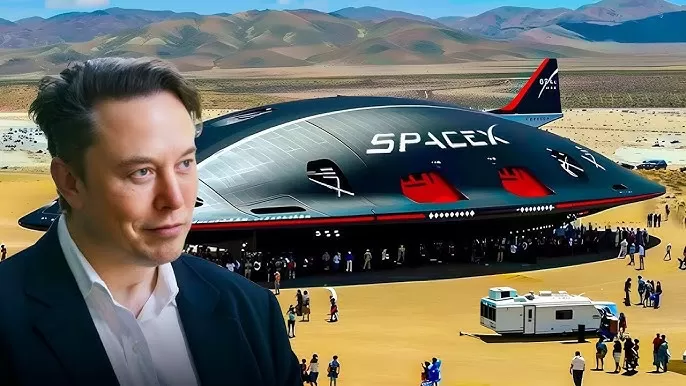
Traditionally, the United States has maintained its dominance in the skies with formidable aircraft such as the F-35 Lightning II and F-22 Raptor. However, the emergence of the X1 has transformed these icons of American military power into symbols of a bygone era, prompting the US Air Force to accelerate its Next Generation Air Dominance (NGAD) fighter program in an effort to regain its advantage.
In Europe, the launch of the X1 has cast a shadow over collaborative efforts such as the Tempest fighter program, led by the United Kingdom, Italy, and Sweden. What was once heralded as the future of European air power now seems dated in the face of the X1’s superior technology.

Even countries like Iran, which has invested heavily in hypersonic missile technology to gain a strategic advantage, have had to rethink their ambitions. The X1’s exceptional speed and maneuverability are overwhelming even the most advanced missile systems, rendering them ineffective against this new aerial adversary.
The rise of the X1 has sparked a heated debate about the ethical and political implications of privatized warfare. Critics say that Musk’s control of such a powerful weapon without any democratic oversight is a step too far. The idea that a single individual, unelected and operating outside traditional government frameworks, could wield such military power is deeply troubling to many.
Musk defends the X1 by arguing that the technology’s evolution was inevitable. He positions himself as a responsible steward of this power, someone who understands its potential for both constructive and destructive purposes. Yet his detractors are not convinced. They view the X1 as a weapon of mᴀss destruction capable of tipping the balance of international power in unpredictable and dangerous ways.
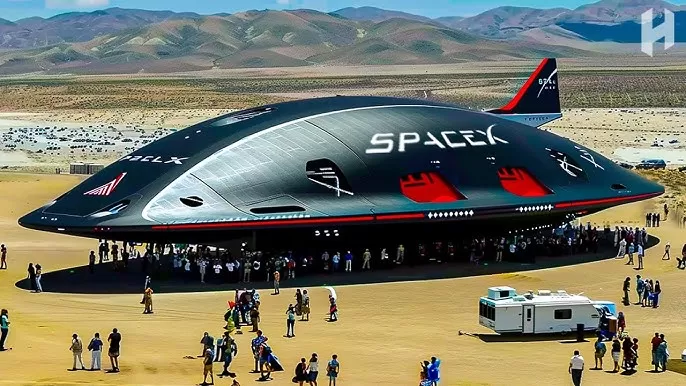
Ethical concerns surrounding the X1 were further amplified when reports surfaced that Musk had negotiated with various governments to sell the technology. While some believe that widespread distribution of the X1 could democratize access to advanced military capabilities, others see it as a potential source of global instability.
As the controversy spills over into U.S. domestic politics, questions about the regulation and oversight of private military technology have become increasingly urgent. Lawmakers are grappling with the implications of a U.S. citizen developing and deploying such a weapon without government oversight, leading to calls for stricter regulation.
While the X1 has revolutionized the battlefield with its precision strikes and extended flight time, it has also come at a significant human cost. Its deployments in the Middle East have led to increased civilian casualties, as its targeting systems sometimes fail to distinguish between combatants and noncombatants. Human rights groups have condemned its use, calling it a violation of international law and a dangerous escalation of the war.
In public, Musk has remained unwavering in his criticism. He claims that war is inherently chaotic and that the X1 is the most effective tool available to minimize casualties on all sides. By comparing the effectiveness of the X1 to traditional airstrikes, which often result in greater collateral damage, Musk has tried to justify its creation.
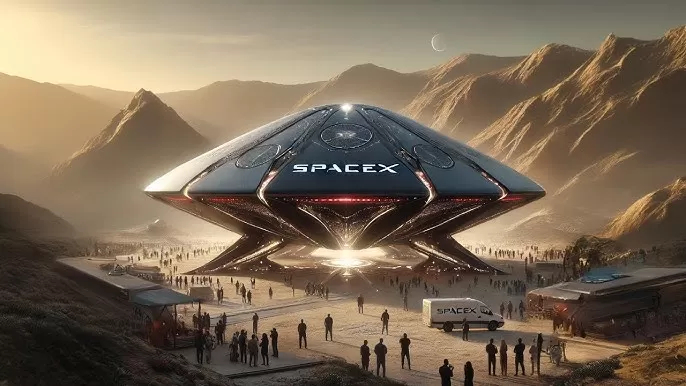
His ᴀssurances, however, were not enough to quell growing outrage, both domestically and internationally. The X1’s sophisticated weaponry and the civilian casualties it caused have sparked a broader debate about the future of warfare and the ethical limits of technological innovation.
The X1 UFO fighter jet represents more than just a milestone in the evolution of military technology; it is the harbinger of a new era in which air superiority is defined not by the size and strength of a nation’s military, but by access to cutting-edge technology.
The upheavals wrought by the X1 have profound implications. For centuries, global power dynamics have been shaped by the ability to project military force. With the X1, that balance is being rebalanced. Small nations, previously at the mercy of the great powers, now have the opportunity to level the playing field by acquiring equally advanced technology.
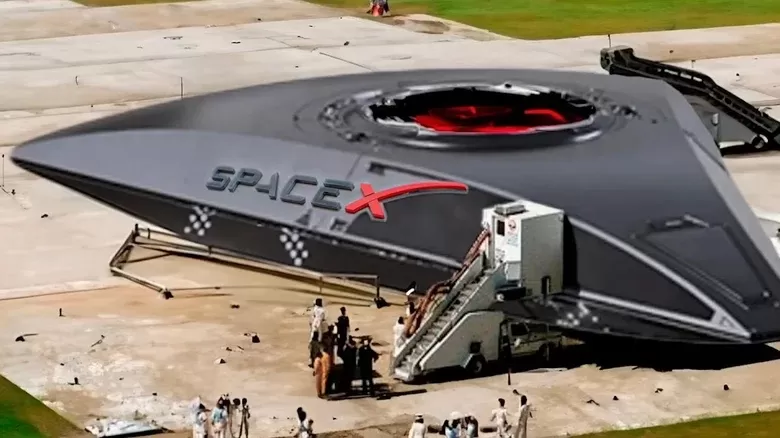
The democratization of these advanced military capabilities comes with an increased risk of global conflict. As more countries seek to obtain the X1 or develop equivalent technologies, the risk of escalation and unintended consequences increases exponentially. The world is entering uncharted territory, where the rules of engagement are being rewritten in real time and the full impact of technological innovation remains unpredictable.
In short, the X1 UFO fighter is a testament to both the extraordinary potential and the considerable risks of living in an age of rapid technological advancement. It is a stark reminder that progress, while beneficial, often comes at a high price. The line between innovation and destruction is thin, and the power to shape the future of warfare—and perhaps humanity itself—now rests in the hands of those who can responsibly harness this technology.
As the X1 continues to dominate the skies, it is imperative that world leaders, policymakers, and technologists engage in serious dialogue about the ethical and strategic implications of such advances. The future of warfare may well depend on decisions made today, and it is incumbent upon the international community to ensure that continued progress does not lead us down a path of irreversible conflict and destruction.




